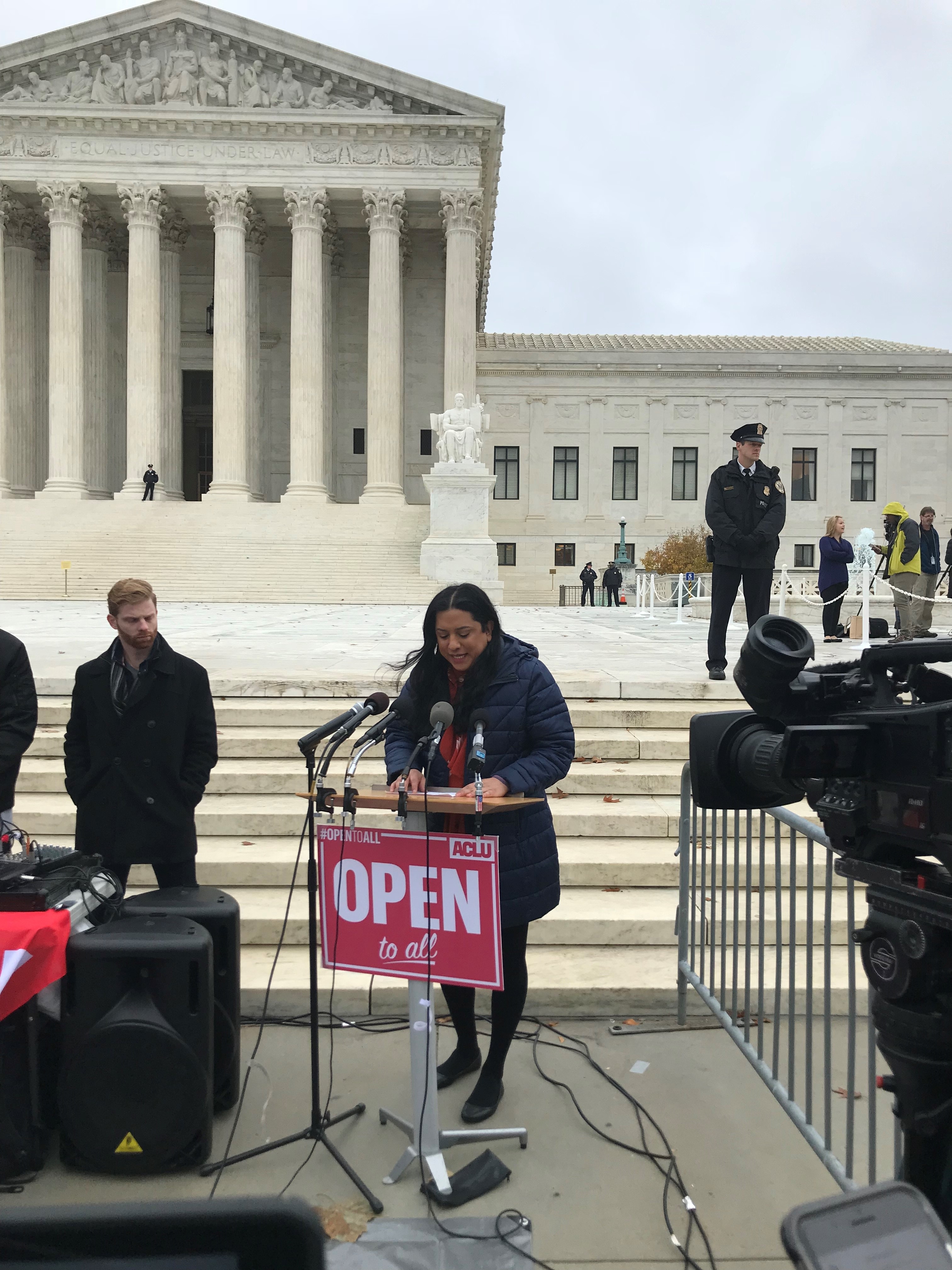This morning, Transgender Law Center deputy director Isa Noyola spoke at a rally about why business must be #OpenToAll as the Supreme Court heard arguments in the ACLU’s Masterpiece case. As TLC laid out in our amicus brief for the case, a ruling allowing discrimination could have devastating consequences for transgender and gender nonconforming people of color across the board. Watch the video of Isa at the rally or read her prepared remarks below.
I’m Isa Noyola, deputy director at Transgender Law Center, the largest national trans-led organization advocating self-determination for all people.
We are speaking out on this case because of the devastating impact a ruling supporting discrimination would have on my community: transgender and gender nonconforming people of color.
Discrimination for our community is not something theoretical. In a year where at least 24 transgender people that we know of have been murdered in this country – most of them Black trans women – discrimination is not something abstract. It doesn’t just happen to you, you notice it, you live it. It is an act of violence that can limit what we see as our own potential in this world, that can deprive of us jobs, housing, and education, that can make us feel unsafe leaving our home if we have one.
As shared through personal stories in Transgender Law Center’s amicus brief to the Supreme Court, being turned away for being trans is often personally devastating and can have a profound negative impact on someone’s life. In some cases, it can put people in life-threatening situations.
Jaime, a transgender woman from LA whose story is in the brief, dreamed of becoming a flight attendant after high school, but was told by a college dean and an airline she interviewed with that it wasn’t possible because she is trans. She panicked and felt like there was no future or opportunities for her because of who she is, and turned to sex work for survival. She has since left the sex industry and still hopes to one day become a flight attendant, but remains terrified of people finding out she is trans.
In one case that in some ways is very similar to Masterpiece, Beverly, a transgender Latina woman whose story we featured in the brief, was turned away from a hair salon by a stylist who cited religious reasons once she learned she was trans. The episode was humiliating and devastating for Beverly, whose shame and fear after that followed her for years and made it impossible for her to visit a salon again. She ultimately learned to cut her own hair and hopes to open up her own salon.
These personal stories are the clearest illustration that discrimination like that at issue in this case can change the course of a person’s life, threaten their survival, and impact them for years to come.
There is no question that allowing businesses to pick and choose which laws to follow would have devastating consequences for transgender and gender non-conforming people of color, who already face intense discrimination in every aspect of life.
Nobody should be turned away or denied service just because of who they are.

